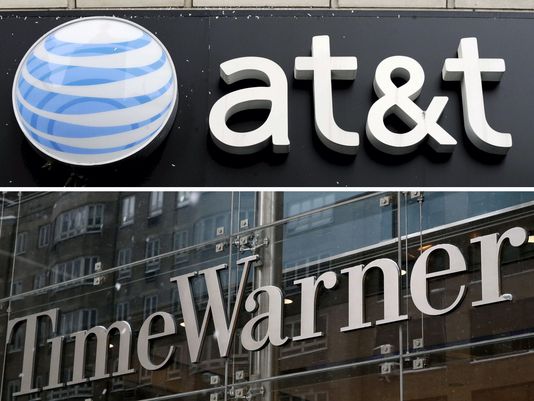
The Justice Department claimed federal judge Richard Leon ruled in favor of AT&T’s $85 billion acquisition of Time Warner on June 12 “only by erroneously ignoring fundamental principles of economics and common sense.”
The agency made that assertion in a brief filed Monday outlining the government’s reasons for blocking the merger on appeal.
As part of his June ruling, Leon strongly urged the government to resist a stay and not to appeal the decision, stating at the time that, “I do not believe that the government has a likelihood of success on the merits of the appeal.”
The government filed an appeal a month later anyway.
AT&T had a swift response to the government brief.
“Appeals aren’t ‘do-overs.’ After a long trial, Judge Leon weighed the evidence and rendered a comprehensive 172-page decision that systematically exposed each of the many holes in the government’s case,” AT&T’s general counsel David McAtee said in a statement emailed to USA TODAY. “There is nothing in DOJ’s brief today that should disturb that decision.”
AT&T announced the deal to acquire Time Warner, whose properties included HBO, CNN and TNT, in October 2016. The Justice Department sued to block the merger some 13 months later, claiming AT&T would gain too much power over both how Americans get their entertainment – AT&T provides broadband as well as owns satellite TV service DirecTV – and what it is that they watch.
During the ensuing six-week trial held in the U.S. District Court in Washington, D.C., the Justice Department argued AT&T would have the leverage to charge rival pay-TV providers more for the right to distribute Time Warner’s networks, with higher fees passed along to consumers.
AT&T countered that the post-merger company would be better able to compete against such online video competitors as Facebook, Google, Netflix and Apple.
The government brief added that Leon’s conclusion rested on “two fundamental analytical errors: It discarded the economics of bargaining, and it failed to apply the foundational principle of corporate-wide profit maximization.”
The brief also went on to say that AT&T CEO Randall Stephenson has “acknowledged that despite his stated intention to operate Time Warner and AT&T independently, both units will report to him; he will be responsible for both units’ strategic planning; and as CEO he is obligated to maximize shareholder value for the company as a whole.”

